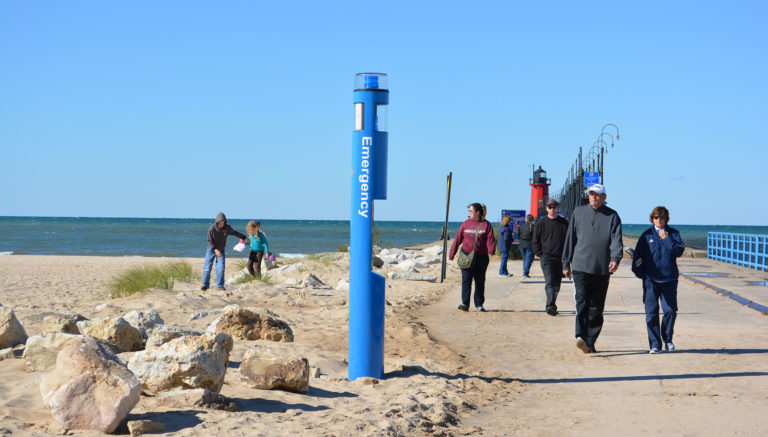Automated Recovery of Oil - oil recovery services
As a result, more and more institutions are taking the necessary steps to ensure everyone enjoys the peace of mind of a safe environment. Among those initiatives is increasing the visibility of security systems, particularly when it comes to outdoor lighting and emergency communications.
Blue light phones, particularly tower or pedestal models, have seen resurgence in popularity over the past several years for a number of reasons:
A growing number of institutions are being proactive in raising the profile of the safety protocols available at their locations.
For example, a youth council in Charlottesville, Va., that regularly weighs in on issues that affect the community started circulating a petition in early December requesting the city installs emergency blue light phones in the downtown shopping district.
From the more-recent reports of violence at Penn State University and the University of Virginia to the not-so-distant horrors of Virginia Tech, educational institutions continue to learn just how important it is to have comprehensive security and safety policies.
A student at the University of California, Berkeley discovered just how useful that versatility and visibility can be in mid-October. After two men robbed him, the student quickly used one of the many blue light phones located throughout the school’s 1,200-acre campus to contact police, who then were able to quickly apprehend the two suspects and return the stolen items.
The University of Massachusetts recently held a Walk for Light event, which highlighted issues such as lighting problems and overgrown bushes and trees, while the University of Ontario Institute for Technology launched a Yes Means Yes sexual harassment campaign focused on empowering individuals and included a renewed emphasis on the assistance blue light phones can provide. The University of Tennessee emphasized the use of help points after a student was groped while jogging on campus, and Fort Hays State University in Kansas has held annual safety walks that highlight areas on campus that aren’t well lit and may need emergency kiosks.
Central Michigan University even held a Blue Light Fun Run in 2013 that led participants to emergency phone locations around campus to build awareness.
Regardless of the technology, establishing a visible security system is only one easy-but-necessary step for colleges and universities looking to create a safe environment. But the work doesn’t end with installation. Without continually updating and informing an ever-changing student population, institutions will continue to fight an uphill battle when it comes to campus safety.

“I think they are necessary in some capacity if for no other reason than public perception,” Elvey said. “When parents and visitors come to our campus, they expect to see those things and they recognize that when they are out there that connotes a safe, secure campus.”
During a 2014 webinar covering the topic of school security, Bill Elvey, associate vice chancellor for facilities planning and management at the University of Wisconsin-Madison, said blue light phones still play a meaningful role for college campuses.
A passive approach to campus safety and security simply doesn’t cut it anymore, not if a college or university wants to meet Title IX and Clery Act standards. Not when an estimated one in four women experience sexual assault at some point while in school or university. And not when the fear of an active shooter remains alive.
Ready to take the next step towards enhancing your community's safety? Our dedicated Code Blue Sales Representatives are ready and eager to assist you. Get personalized advice, answers to your questions, and find the perfect safety solution tailored to your specific needs. Click below to locate a sales representative near you
“I think they have an understanding that the value of the [phones] might be more symbolic than practical, but the research they’ve done has shown that when there are blue light phones crime is less likely to happen,” the Charlottesville Tomorrow reported one student as saying.




 Ms.Cici
Ms.Cici 
 8618319014500
8618319014500